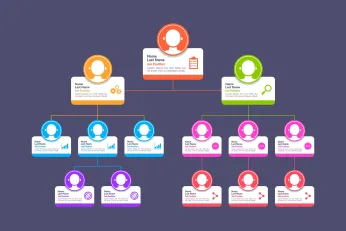7 modi per gestire efficacemente le obiezioni alle vendite con esempi e 30 confutazioni
Una guida pratica per gestire le obiezioni alle vendite. Imparate tecniche e strategie collaudate per superare le esitazioni e chiudere gli affari.
In questa pagina
Ogni potenziale cliente con cui vi confrontate avrà probabilmente delle obiezioni sulle vendite: dubbi sul prezzo, sul valore, sulla pertinenza alle sue esigenze o sul potere d'acquisto. Se non avessero riserve, avrebbero già effettuato un acquisto.
Affrontare le obiezioni è una parte fondamentale del processo di vendita, ma può anche essere un ostacolo significativo per far avanzare i prospect nella pipeline. Sebbene si possa essere tentati di accettare queste obiezioni e di inviare immediatamente un'e-mail di rottura, la padronanza dell'arte di scoprire e risolvere i dubbi è essenziale per ottenere conversioni di successo.
Quando ci si trova di fronte a delle obiezioni nelle vendite, non è un segnale per tirarsi indietro, ma un'opportunità per rafforzare il valore del vostro prodotto. Capire come gestire le obiezioni in modo efficace può aiutarvi a trasformare le esitazioni in conversioni.
In questa guida esploreremo strategie pratiche per superare le più comuni obiezioni alle vendite, insieme ad esempi reali che vi aiuteranno a gestire queste conversazioni con sicurezza.
Che cos'è un'obiezione di vendita?
Un'obiezione di vendita è una preoccupazione o un'esitazione espressa da un potenziale acquirente che gli impedisce di effettuare un acquisto. Queste obiezioni spesso derivano da dubbi sul valore del prodotto, da vincoli di budget o da una mancanza di fiducia nel marchio. Affrontare efficacemente questi problemi è fondamentale per qualsiasi team di vendita, poiché superare le obiezioni può trasformare l'esitazione in una conversione di successo.
La gestione delle obiezioni richiede un approccio strategico, in cui i professionisti delle vendite identificano la causa principale e rispondono con soluzioni su misura. Di seguito sono riportate alcune delle più comuni obiezioni alle vendite e i modi per gestirle efficacemente.
Ma perché è così importante creare un quadro di riferimento? Perché è importante gestire le obiezioni nel campo delle vendite? Cerchiamo di capire.
Perché è importante la gestione delle obiezioni?
Il rifiuto è un evento comune nelle vendite ed è essenziale imparare a gestirlo in modo efficace. Sviluppare le competenze per gestire il rifiuto può aiutare i professionisti delle vendite a:
- Mantenere la motivazione: Il rifiuto può facilmente demoralizzare anche i venditori più resistenti. Imparare a gestire il rifiuto vi aiuterà a rimanere motivati e concentrati sui vostri obiettivi.
- Migliorare le prestazioni di vendita: Capendo come gestire il rifiuto e trasformandolo in un'opportunità di apprendimento, è possibile affinare il proprio approccio alle vendite e aumentare le possibilità di convertire i contatti in clienti.
- Costruire la resilienza: La vendita è una professione impegnativa che richiede resilienza e durezza mentale. Padroneggiare l'arte di gestire i rifiuti rafforzerà la vostra resilienza, consentendovi di riprendervi rapidamente e di perseverare nei momenti difficili.
7 passi per una perfetta gestione delle obiezioni
Di seguito sono riportati i passaggi e i metodi per gestire perfettamente gli oggetti nelle vendite.
1. Vincoli di bilancio
Una delle obiezioni più frequenti nelle vendite riguarda i prezzi. I potenziali acquirenti possono esprimere preoccupazioni sulla convenienza economica o affermare di non avere il budget necessario al momento. Sebbene a volte si tratti di una preoccupazione genuina, può anche essere un modo per i potenziali clienti di ritardare o evitare l'acquisto.
Per gestire questo problema, i rappresentanti di vendita devono scavare più a fondo per capire se il vincolo di bilancio è la vera ragione o se ci sono esitazioni di fondo. Se il potenziale cliente è sinceramente interessato, ma deve far fronte a limitazioni finanziarie, è bene rimanere in contatto e offrire opzioni di pagamento flessibili o sconti, se possibile, per tenerlo impegnato fino a quando non sarà pronto per l'acquisto.
2. Mancanza di fiducia
La fiducia è alla base di qualsiasi vendita di successo. Se un potenziale cliente non conosce il vostro marchio o ha riscontrato recensioni negative, potrebbe esitare a procedere.
Per superare questo problema, i team di vendita dovrebbero concentrarsi sulla costruzione della credibilità attraverso testimonianze, casi di studio e una comunicazione trasparente. Rispondere direttamente alle preoccupazioni e fornire prove sociali può aiutare a rassicurare i potenziali clienti che il vostro prodotto o servizio soddisfa le loro aspettative.
3. Assenza di necessità
Un potenziale cliente potrebbe non riconoscere un bisogno immediato del vostro prodotto o servizio, rendendo difficile l'acquisto. Se non ne vede il valore, è improbabile che proceda.
I professionisti delle vendite possono affrontare questo problema identificando i punti dolenti nascosti e dimostrando come il prodotto possa risolvere problemi che il potenziale cliente potrebbe non aver considerato. Porre le domande giuste e proporre casi d'uso pertinenti può aiutare a creare consapevolezza e suscitare interesse.
4. Mancanza di interesse
La mancanza di interesse di un potenziale cliente può derivare dal fatto che non capisce il valore del prodotto o semplicemente non vede come si adatta alle sue esigenze. In questi casi, è essenziale fornire informazioni chiare e convincenti sui vantaggi del prodotto.
Educare il potenziale cliente attraverso presentazioni personalizzate, casi di studio o dimostrazioni può contribuire a generare curiosità. Quando i rappresentanti posizionano il prodotto come una soluzione piuttosto che come un'altra offerta, aumentano le possibilità di coinvolgimento.
5. Confronto dei prezzi con la concorrenza
I potenziali acquirenti spesso confrontano i prezzi prima di prendere una decisione. Se trovano un concorrente che offre caratteristiche simili a un prezzo inferiore, potrebbero esitare a scegliere il vostro prodotto.
Piuttosto che impegnarsi in una guerra dei prezzi, i rappresentanti di vendita dovrebbero sottolineare il valore unico che il loro prodotto offre. L'evidenziazione di un servizio clienti superiore, di caratteristiche esclusive o di vantaggi economici a lungo termine può aiutare a giustificare il prezzo e a dimostrare perché la vostra soluzione è la scelta migliore.
6. Confronto delle caratteristiche con i concorrenti
Analogamente alle preoccupazioni relative al prezzo, i potenziali clienti possono confrontare le caratteristiche del vostro prodotto con quelle dei concorrenti e scoprire che manca qualcosa. Se una caratteristica chiave che desiderano non è disponibile, potrebbero esitare a procedere.
I team di vendita possono trasformare questa situazione in un'opportunità mostrando i punti di forza del loro prodotto, anche se manca una particolare funzione. Se la funzione è prevista per un aggiornamento futuro, la comunicazione può rassicurare il potenziale cliente. Inoltre, la raccolta di questi feedback aiuta le aziende a perfezionare le loro offerte in base alle esigenze dei clienti.
7. Mancanza di urgenza
Alcuni clienti ritardano l'acquisto semplicemente perché non sentono il bisogno immediato di agire. Possono manifestare interesse, ma preferiscono aspettare un momento più opportuno.
I professionisti delle vendite devono capire le priorità del cliente e creare un senso di urgenza senza essere invadenti. Offrire promozioni a tempo limitato, dimostrare potenziali risparmi sui costi o evidenziare le tendenze del settore possono incoraggiare gli acquirenti ad agire prima che poi.
Il rifiuto delle vendite è una parte inevitabile del processo, ma gestirlo con resilienza può fare la differenza. Di seguito è riportato il quadro di riferimento per la gestione delle obiezioni.
Come superare le obiezioni alla vendita con esempi?
Capire il motivo del rifiuto di un prospect e adattare di conseguenza la strategia di vendita può migliorare le interazioni future. Di seguito sono illustrati i modi per superare le obiezioni alla vendita in cui è possibile utilizzare attivamente il quadro di gestione delle obiezioni.
1. Ascoltare attentamente prima di rispondere
L'ascolto attivo è alla base di conversazioni di vendita efficaci. Prima di offrire una soluzione, prendetevi il tempo necessario per comprendere appieno le preoccupazioni del potenziale cliente. Incoraggiatelo a esprimere le sue aspettative, i suoi timori e le sue esitazioni.
Esempio: Se un potenziale cliente dice: "Non sono sicuro che questa soluzione sia adatta alla mia azienda", evitate di buttarvi nella vendita. Piuttosto, ponete domande chiarificatrici come: "Può dirci qualcosa di più su ciò che sta cercando in una soluzione?". In questo modo si crea fiducia e si apre la porta a un dialogo significativo.
2. Comunicare che si comprendono le loro preoccupazioni
Quando i potenziali clienti si sentono ascoltati, è più probabile che si impegnino in ulteriori discussioni. Riconoscete le loro preoccupazioni e rassicurateli sul fatto che comprendete la loro prospettiva.
Esempio: Se un acquirente parla di vincoli di budget, invece di ignorare la sua preoccupazione, rispondete con empatia: "Capisco perfettamente che il budget sia una priorità. Molti dei nostri clienti all'inizio avevano la stessa preoccupazione e li abbiamo aiutati a trovare un piano tariffario flessibile che andasse bene per loro". Questo approccio rassicura il potenziale cliente e mantiene aperta la conversazione.
3. Anticipare le obiezioni prima che si presentino
I professionisti delle vendite che si preparano in modo proattivo alle obiezioni possono affrontarle più agevolmente. Analizzando le esperienze passate, è possibile prevedere le obiezioni di vendita più comuni e creare risposte efficaci.
Esempio: Se il prezzo è un problema frequente, siate pronti con una risposta basata sul valore, come "Sebbene la nostra soluzione possa avere un costo iniziale più elevato, offre un ROI misurabile semplificando i vostri processi e aumentando l'efficienza". La preparazione alle obiezioni fa sì che i clienti vedano il valore e non solo il prezzo.
4. Rispondere alle obiezioni in modo tempestivo ed efficace
Riconoscere le obiezioni senza offrire una soluzione può portare alla perdita di opportunità. I potenziali clienti hanno bisogno di vedere che le loro preoccupazioni vengono affrontate.
Esempio: Se un cliente è titubante a causa delle difficoltà di implementazione, rassicuratelo spiegandogli il processo di onboarding: "Il nostro team fornisce una guida passo dopo passo e una formazione pratica per garantire una transizione senza problemi". Una risposta tempestiva può evitare che i clienti si rivolgano alla concorrenza.
5. Identificare il vero motivo dell'obiezione
A volte, l'obiezione dichiarata non è il vero problema. Scavate più a fondo per scoprire la vera ragione della loro esitazione.
Esempio: Se un potenziale cliente dice: "Ho bisogno di più tempo per decidere", invece di lasciar perdere, chiedete: "C'è un problema specifico su cui vorrebbe avere più chiarezza?". Spesso, il vero problema potrebbe essere la mancanza di comprensione del prodotto o i vincoli decisionali interni. Se affrontate la causa principale, aumenterete le possibilità di concludere l'affare.
6. Seguire in modo coerente
Non tutte le obiezioni significano un vero e proprio rifiuto. Molti clienti hanno bisogno di tempo per valutare le loro opzioni. Un follow-up strategico può mantenere la vostra offerta in primo piano.
Esempio: Se un potenziale cliente rimanda la sua decisione, inviate un'e-mail di follow-up con casi di studio pertinenti: "Capisco che il tempismo è importante. Ecco come le aziende del vostro settore hanno beneficiato della nostra soluzione. Ci sentiamo la prossima settimana per discutere di ulteriori domande". In questo modo si garantisce un coinvolgimento continuo senza essere invadenti.
7. Offrire soluzioni su misura per i loro punti dolenti
Comprendere le sfide di un potenziale cliente vi permette di posizionare il vostro prodotto come soluzione ideale. Invece di una presentazione generica, personalizzate il vostro approccio per rispondere alle loro esigenze specifiche.
Esempio: Se un'azienda ha problemi di fidelizzazione dei dipendenti, evidenziate come la vostra soluzione migliora il coinvolgimento: "La nostra piattaforma ha aiutato le aziende ad aumentare la fidelizzazione dei dipendenti del 30% grazie a premi e riconoscimenti personalizzati". Un approccio mirato aumenta la probabilità di superare le obiezioni.
8. Chiudere l'obiezione e andare avanti
Una volta affrontate tutte le preoccupazioni, guidate il potenziale cliente a prendere una decisione. Assicuratevi che si sentano sicuri e rassicurati prima di concludere l'affare.
Esempio: Se un acquirente è ancora titubante, riassumete la discussione: "Abbiamo chiarito le sue preoccupazioni riguardo ai prezzi e all'implementazione. Dato che offriamo piani di pagamento flessibili e supporto per l'onboarding, si sente pronto a procedere?". Questo approccio diretto ma rassicurante aiuta a chiudere le vendite senza problemi.
30 Rifiuto comune nelle vendite
Di seguito sono riportati 30 rifiuti di vendita comuni, suddivisi in sei categorie per una migliore comprensione. Abbiamo illustrato alcuni esempi che vi permetteranno di orientare la conversazione.
Obiezioni su prezzi e budget
1. "È troppo costoso".
Invece di abbassare il prezzo, concentratevi sulla dimostrazione del valore.
2. "Non abbiamo il budget per questo".
Riformulare la conversazione per concentrarsi sul valore a lungo termine.
3. "Potete offrire uno sconto?".
Enfatizzate il valore piuttosto che abbassare il prezzo.
4. "Posso trovare un'alternativa più economica altrove".
Differenziate la vostra offerta al di là del prezzo.
5. "Siamo soddisfatti del nostro attuale fornitore".
Spostate l'attenzione sulle aree in cui aggiungete più valore.
Tempistiche e obiezioni decisionali
6. "Non è un buon momento".
Capire cosa rende il momento giusto.
7. "Dobbiamo pensarci su".
Scoprire la vera esitazione.
8. "Devo verificare con il mio team".
Offrire supporto nelle discussioni interne.
9. "Siamo nel bel mezzo di un altro progetto".
Trovate un modo per allinearvi alle loro attuali priorità.
10. "Stiamo valutando altre opzioni".
Posizionatevi come la scelta migliore.
Obiezioni specifiche al prodotto e alle caratteristiche
11. "Il vostro prodotto manca di [caratteristica specifica]".
Trasformatela in una discussione sui bisogni.
12. "Abbiamo bisogno solo di una parte della vostra soluzione, non di tutto".
Personalizzare l'offerta.
13. "Il vostro prodotto è troppo complicato da implementare".
Alleviare le loro preoccupazioni con garanzie di supporto.
14. "Ci preoccupa l'integrazione con i nostri sistemi esistenti".
Evidenziate l'integrazione e il supporto senza soluzione di continuità.
15. "Abbiamo avuto una brutta esperienza con soluzioni simili in passato".
Riconoscere e affrontare le loro preoccupazioni.
Obiezioni sulla fiducia e sulla credibilità
16. "Non ho mai sentito parlare della vostra azienda".
Costruire la fiducia con la prova sociale.
17. "Preferiamo lavorare con fornitori più grandi".
Evidenziare il servizio personalizzato.
18. "La vostra azienda è troppo nuova".
Sfruttare l'esperienza e le storie di successo.
19. "I vostri concorrenti hanno più esperienza".
Differenziazione della vetrina.
20. "Posso vedere le testimonianze dei clienti o i casi di studio?".
Fornire la prova del successo.
Obiezioni sul rischio e sull'impegno
21. "Non sono sicuro che questo possa funzionare per noi".
Scoprite le loro esitazioni.
22. "Non vogliamo impegnarci in un contratto a lungo termine".
Offrire opzioni flessibili.
23. "E se non funziona?".
Fornire rassicurazioni.
24. "Non vogliamo cambiare fornitore".
Mostrare una transizione senza soluzione di continuità.
25. "Mi sembra una seccatura troppo grande per cambiare".
Rendere facile la transizione.
Obiezioni specifiche del mercato e del settore
26. "Non ne vediamo la necessità nel nostro settore".
Informare sui vantaggi del settore.
27. "Il mercato è incerto in questo momento".
Trasformare l'incertezza in un'opportunità.
28. "Non è una priorità per noi in questo momento".
Allinearsi alle loro priorità.
29. "Stiamo già raggiungendo i nostri obiettivi senza questo".
Sfidare lo status quo.
30. "Non vediamo un forte ROI con questo".
Dimostrare risultati misurabili.
Ora esaminiamo alcuni modelli di e-mail.
Esempi di risposte via e-mail per gestire il rifiuto nelle vendite
1. Esempio di risposta: Tenere la porta aperta
Grazie per aver preso in considerazione il nostro prodotto/servizio. Pur comprendendo la sua decisione, voglio che sappia che il nostro team continua a impegnarsi per fornire soluzioni di alto livello. Se le sue esigenze dovessero cambiare in futuro o se ci fosse qualcosa per cui possiamo aiutarla, non esiti a contattarci. Apprezziamo la vostra attività e saremo più che felici di esplorare insieme nuove possibilità.
Cordiali saluti,
[Il vostro nome]
2. Esempio di risposta: Porre una domanda o un feedback
Grazie per aver esaminato la nostra proposta. Apprezzo il suo tempo e la sua considerazione. Se non le dispiace, mi piacerebbe sentire il suo feedback sul motivo per cui la nostra offerta non è in linea con le sue esigenze. Le sue indicazioni ci aiuteranno a migliorare e a comprendere meglio le esigenze dei nostri clienti. Se c'è qualcosa di specifico di cui vorrebbe discutere o se ha delle domande, non esiti a condividerle. Apprezziamo il vostro contributo e l'opportunità di imparare dal vostro punto di vista.
Cordiali saluti,
[Il tuo nome]
3. Esempio di risposta: Inviare alla persona giusta
Grazie per la sua risposta. Capisco che il nostro prodotto/servizio potrebbe non essere adatto alle sue attuali esigenze. Tuttavia, ritengo che sarebbe utile metterla in contatto con [Nome del collega], il nostro specialista in [area correlata]. Hanno una vasta esperienza nell'affrontare sfide simili alla vostra e potrebbero avere soluzioni alternative o intuizioni che potrebbero essere utili per voi. Inoltrerò loro le vostre informazioni e vi contatteranno a breve.
Vi ringrazio ancora per aver preso in considerazione la nostra offerta e vi auguro di trovare la soluzione giusta per le vostre esigenze.
Cordiali saluti,
[Il vostro nome]
Queste risposte esemplificative forniscono diversi approcci alla gestione del rifiuto nelle vendite, come lasciare la porta aperta a future opportunità, cercare un feedback per migliorare e reindirizzare il potenziale cliente a un contatto più adatto. Adattate queste risposte alla vostra voce e alle circostanze specifiche del rifiuto.
Conclusione
Superare le obiezioni è un'abilità cruciale per i venditori e porre le domande giuste può fare la differenza. Le 20 domande per la gestione delle obiezioni che abbiamo condiviso in questo articolo sono solo un punto di partenza. Come professionisti delle vendite, dovreste continuare a perfezionare le vostre capacità di porre domande e adattarle alle diverse situazioni e personalità dei clienti.
Gamificare la gestione delle obiezioni di vendita con Compass
Gestire le obiezioni alle vendite può essere impegnativo, ma la gamification lo rende coinvolgente e gratificante. Il software di gamificazione delle vendite diCompass aiuta i rappresentanti a rimanere motivati, a migliorare il loro approccio e a ottenere risultati migliori.

Eseguire concorsi su KPI di gestione delle obiezioni
I rappresentanti di vendita ottengono risultati migliori quando i loro sforzi hanno un impatto diretto sui loro guadagni. Create concorsi che premino i rappresentanti che superano efficacemente le obiezioni, portando a un maggior numero di contratti chiusi e a commissioni più alte.
Creare responsabilità con classifiche in tempo reale
Le classifiche pubbliche e di squadra offrono piena visibilità sul raggiungimento delle quote. I rappresentanti possono tenere traccia dei loro progressi, confrontare le prestazioni e rendersi responsabili delle loro strategie di gestione delle obiezioni.
Tracciare le tendenze delle prestazioni e migliorare le competenze
Grazie a dashboard personalizzati, scorecard e nudge basati sull'intelligenza artificiale, i rappresentanti possono analizzare il loro successo nella gestione delle obiezioni. Gli approfondimenti li aiutano a perfezionare il loro approccio e a chiudere più contratti.
Aumentare le offerte con motivazione e trasparenza
Compass offre punti, badge e premi per riconoscere gli sforzi dei rappresentanti nel superare le obiezioni. I nudge basati sull'intelligenza artificiale li tengono impegnati, mentre la visibilità del piano delle commissioni li aiuta a prevedere i potenziali guadagni.
Utilizzando Compass, i team di vendita possono trasformare le obiezioni in opportunità, aumentando il coinvolgimento e i ricavi. Programmate una chiamata ora!
Domande frequenti
1. Perché i potenziali clienti sollevano obiezioni?
I potenziali clienti sollevano obiezioni perché hanno domande, dubbi o perplessità sul prodotto o sul servizio offerto. Potrebbero non capire come funziona il prodotto o il servizio, potrebbero non vederne il valore o potrebbero non essere convinti che sia adatto alle loro esigenze.
2. Come posso rispondere alle obiezioni di vendita in modo efficace?
Rispondere alle obiezioni di vendita in modo efficace significa ascoltare le preoccupazioni del cliente, entrare in empatia con il suo punto di vista e rispondere alle sue preoccupazioni con informazioni o soluzioni pertinenti.
3. Quali sono le 4 P delle obiezioni nelle vendite?
Le 4 P della gestione delle obiezioni sono Personalizzazione, Valore percepito, Valore delle prestazioni e Prova.
- Personalizzazione: Adattare la risposta alle esigenze specifiche di ciascun potenziale cliente.
- Percepito: Valore quanto un potenziale cliente ritiene che un prodotto o un servizio valga. Questo valore può essere incrementato attraverso la pubblicità, il packaging, il servizio clienti e il materiale di vendita.
- Prestazioni: Valore che evidenzia i benefici e i risultati che un prodotto può fornire.
- Prova: Utilizzare testimonianze, casi di studio e altre prove a sostegno delle affermazioni su un prodotto.
4. Cosa significa gestire le obiezioni nelle vendite?
Gestire le obiezioni nelle vendite significa affrontare tutte le preoccupazioni, le esitazioni o i dubbi che un potenziale cliente potrebbe avere prima di acquistare un prodotto o un servizio. Le obiezioni alla vendita sono una parte normale del processo di vendita e un'opportunità per il venditore di comprendere meglio le esigenze e le preferenze del cliente. Le obiezioni di vendita più comuni sono i vincoli di budget, la mancanza di fiducia o il fatto di non vedere il valore del prodotto.
5. Quali sono le quattro fasi per superare le obiezioni alla vendita?
Le 4 P per superare le obiezioni nelle vendite sono Prepare, Pause, Probe e Propose.
- Prepararsi: Anticipare le potenziali obiezioni e sviluppare strategie per affrontarle.
- Pausa: Prendetevi un momento per comprendere appieno l'obiezione prima di rispondere.
- Sondare: Porre domande di approfondimento per comprendere le ragioni alla base dell'obiezione.
- Proporre: Offrire una soluzione o affrontare l'obiezione con valore.
6. Quali sono le confutazioni più valide?
Le obiezioni alle vendite spesso rientrano in quattro categorie: necessità, urgenza, fiducia e denaro. Ecco alcuni esempi di obiezioni comuni e come gestirle:
- "È troppo caro": L'attrito nell'acquisto può essere dovuto al fatto che il valore percepito dal cliente del prodotto o del servizio non corrisponde al costo. Sottolineate il valore e il ROI che la vostra soluzione offre.
- "Non mi fido della vostra azienda": Fornite prove sociali, come studi di casi e testimonianze di clienti, e concentratevi sulla costruzione di un rapporto con l'acquirente26.
- "Non ho il budget": Questa può essere l'obiezione più facile da sostenere. Potete collaborare con l'acquirente per apportare le modifiche necessarie o sottolineare il valore e il ROI della vostra soluzione.
- "Dovrò parlarne con il mio capo". Determinate se il potenziale cliente non ha autorità o non si fida della vostra azienda. Sostenete la vostra proposta di vendita con prove sociali e sottolineate il valore del vostro prodotto.













